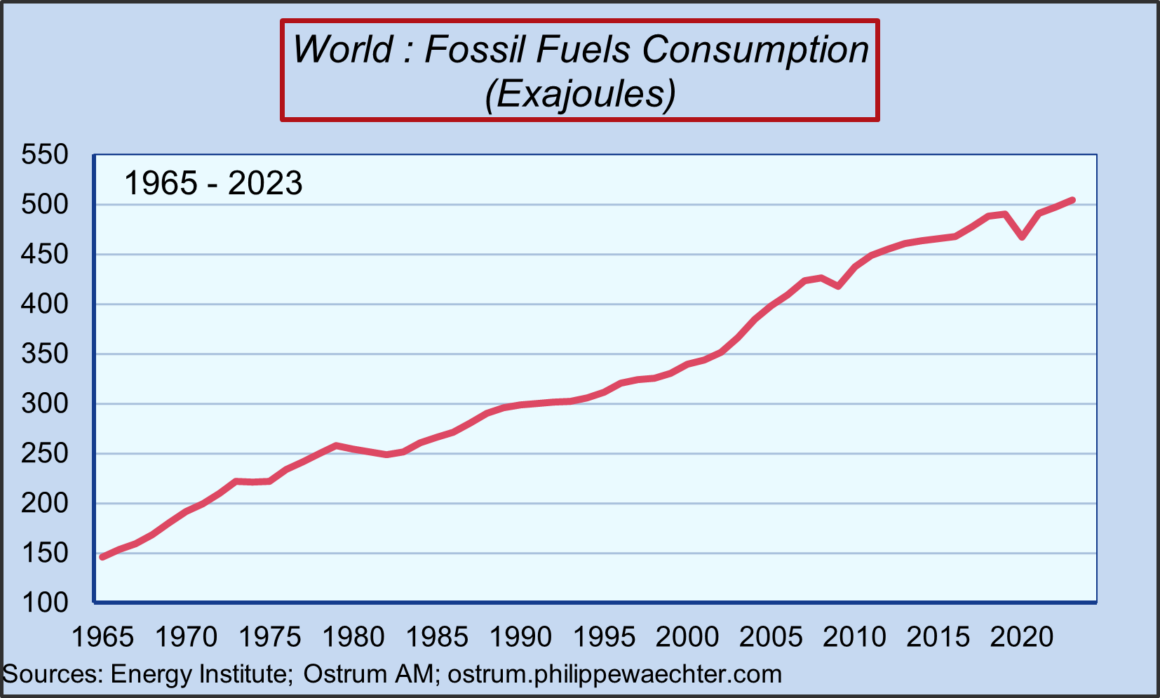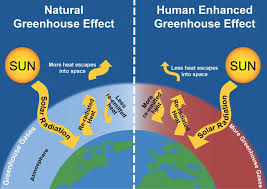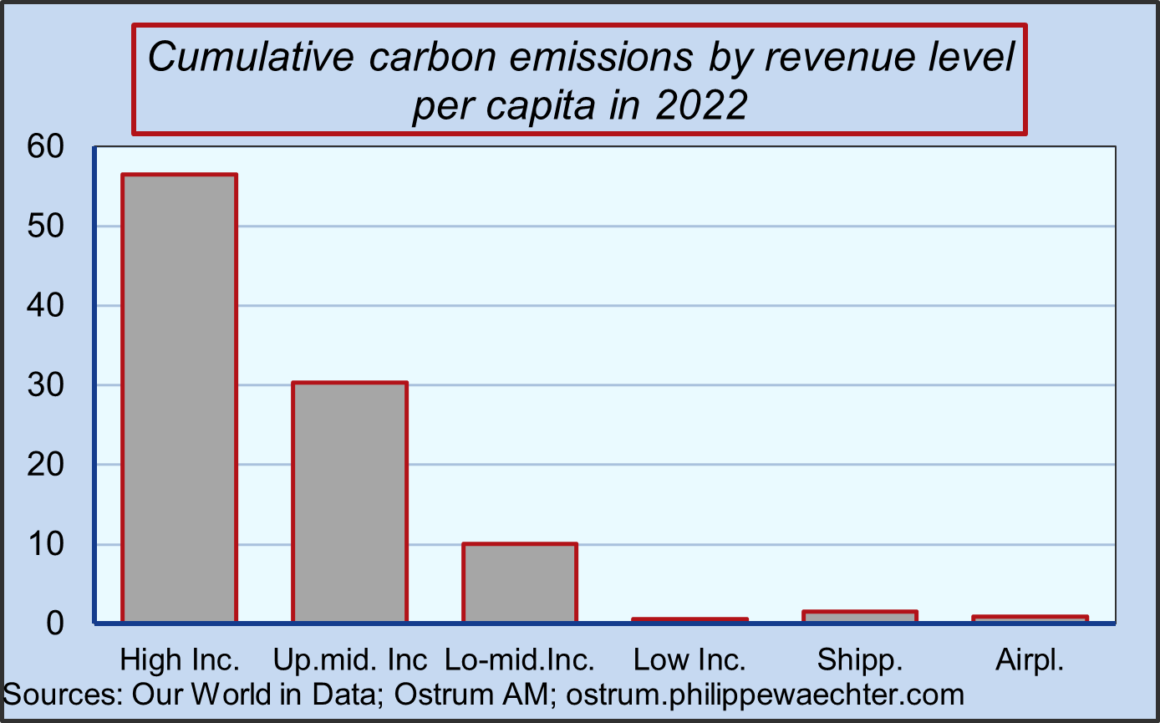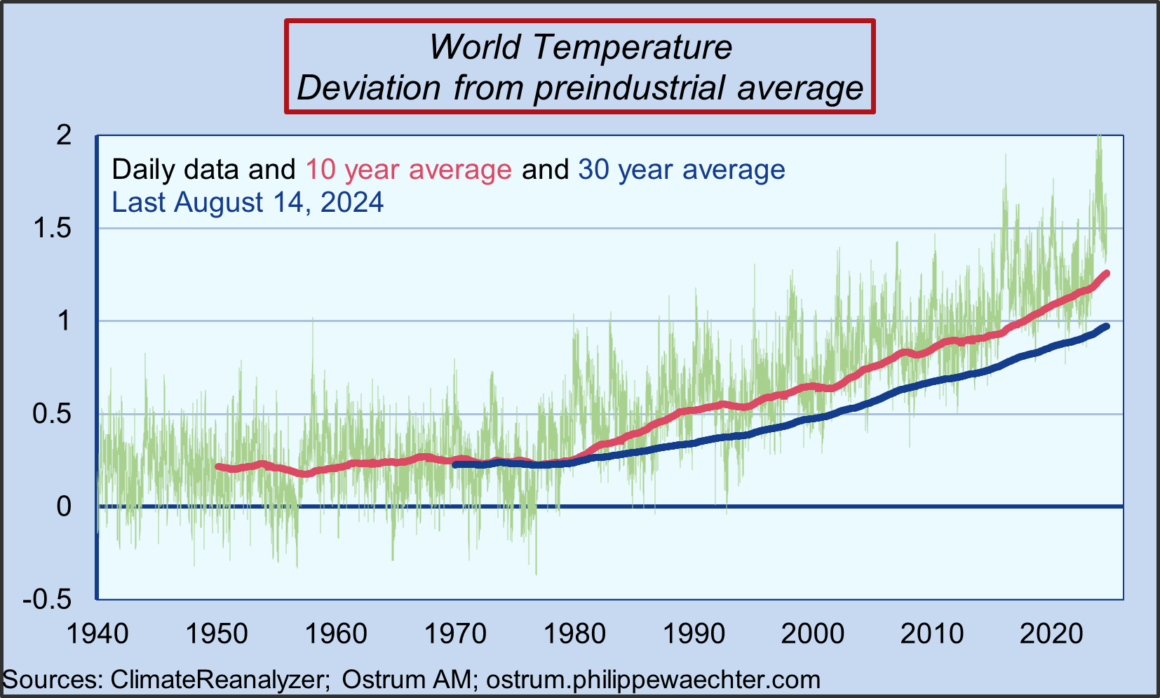The climate is probably the most important issue but the one that is least talked about. However, this summer, after the Olympics, and due to the increase in climatic events, sensitivity to the climate has increased.
But no! there is no immediate solution that would remove the brutality of the necessary adjustments that have not really started. The complex arbitration concerns the social risk. A very expensive liter of gasoline would profoundly change behavior but at the cost of a high social risk. However, by pushing back the deadlines, these questions will continue to be asked.
The other dimension often mentioned concerns the political dimension. Here again there is no common recipe because we must reinvent the world and that is the role of politics.
* * *
After the enthusiasm of the Olympic Games, during which we all became specialists in Léon Marchand, Felix Lebrun and Amandine Buchard, summer discussions with friends over a glass of rosé generally focused on questions relating to the climate.
The increase in climatic events in recent years has made climate a daily concern. From a moderate climate, France has moved to a rather warmer climate. It is this type of shift that is important, and it is this form of accumulation that counts in the climate rupture. As a result, the perception that the framework has been disrupted is more present.
The cold spells of the post-war period were followed by heat waves. These have occurred every year since 2003. It is now seen as normal to have very hot summers, just as it was seen as normal by our parents and grandparents to have very harsh winters. These are not the only climatic events, but these cold and heat waves clearly characterize the upheaval observed.

The shift is the consequence of climate change, which is now at the heart of questions and concerns.
What were the tipping points?
This change in perception on the issue of climate generates two types of reactions.
The first is to imagine that immediate solutions can be found. The infernal machine must be able to be reversed. The crises of the past could be cushioned and beneficial, why should this one escape this historical logic?
The second reaction is to consider that the issue of climate change is above political parties, thus making this upheaval a common cause with trans-partisan solutions.
* * *
Climate change is generating complete changes in the evolution of societies and this is why the shock is of a different nature. The first oil shock had led to a transformation of the production system, making it more efficient in its energy dimension. However, the consumption of fossil fuels was not affected in the long term.
To counter climate change, reducing this consumption is imperative. We will have to consume less fossil fuels in 2050 than in 2024, but also than in 2000 or even in 1990. As the graph shows, this shift has not started, often due to fear of destabilizing social movements (yellow vests), but this has only postponed the deadline.

Two or three things to know to fully understand the issues at stake.
1 – The industrial revolution and all the developments that have taken place since then reflect the need for and the ability to use fossil fuels. These are extremely efficient and easily transportable. So, gasoline is now easy to transport and filling up a car tank only takes a few minutes. This is not the case for the moment with renewable energies. The management of batteries and their recharging is not resolved on electric vehicles.
2 – It is the ever-increasing use of these fossil fuels that has caused the accumulation of carbon in the atmosphere and global warming via the greenhouse effect. The earth is no longer able to return as much heat as in the past because of the carbon layer that acts as a barrier. As a result, the earth is warming.
Greenhouse effect
Greenhouse gas emissions increase the retention of infrared rays (greenhouse effect), thus contributing to global warming.

3 – Stabilizing global temperature requires carbon neutrality, a state where the earth must no longer emit net carbon. Everything that is emitted must be absorbed. This is a major challenge. For Europe and the United States, the horizon for achieving neutrality is set at 2050, or in 25 years. China aims for neutrality by 2060.
There are three possibilities for moving towards carbon neutrality
A – Collectively, we are reducing our consumption of fossil fuels in order to dramatically reduce carbon emissions. It is a complex choice. At the regional level, we can move in this direction; this is the case, for example, within the European Union. Is this possible at the global level because of the differences in development? On this point of differences in development but also in interests, the debate is endless.
Industrial countries have emitted a considerable stock of carbon since the industrial revolution and climate issues are linked to them. Emerging countries have a very small stock of carbon and they want to increase their well-being with more growth, and therefore more emissions. We should be able to arbitrate, but who really wants that?

B – We can count on natural carbon sinks. This is the case of the oceans, which absorb around 30% of emissions each year. However, the oceans are becoming more acidic, and their ability to absorb carbon is affected. Soils are a considerable carbon reserve, but the warming of the permafrost raises questions about the ability of soils to play the same role in the future.
Trees are often an advanced solution to deal with global warming. Forests are important carbon sinks, as we see in particular with the Amazon, frequently cited, even if it is no longer as virtuous.
There are two dimensions to trees and forest.
The first is that the forest no longer has the same absorption capacity everywhere as in the past. Trees are suffering terribly from global warming, fires, the lack of cold, and the forest is not always maintained effectively. In France, the carbon absorption capacity of the forest has declined sharply since the beginning of the century. Over the last 10 years, this absorption capacity has been divided by 2. The other dimension is that planting a tree is a necessary condition, but not sufficient to deal with carbon accumulation. In France, it would be necessary to plant 360 trees per year and per person to absorb the carbon emitted. This would represent 38% of the territory every year!!!
C – Technological shocks. Innovations would solve the climate issue. Either by absorbing the carbon emitted, which already exists, but on too small a scale and at a cost that is still too high. Or by diverting the sun’s rays so that they do not reach the earth, which is called geoengineering.
Innovations in carbon capture must multiply to contribute significantly to convergence towards carbon neutrality, the IPCC takes this into account.
But, geoengineering seems like a Faustian pact, doing everything to preserve our current situation at the risk of tending towards the worst later. There is a lot of research and means, however, it is a very risky choice, because it is conditioned by a collective choice concerning the same types of means and objectives.
In any case, these innovations are far from having the scale necessary to avoid a disruption in behavior. Time is of the essence and decisions must be made now.

Why now?
Because on several major factors regulating the climate, Greenland, the ice pack, marine flows, the temperature, on the rise, crosses irreversible breaking points. The first temperature threshold is at 1.5°C in median, it is close. This is why we must intervene quickly.
It emerges from these elements that the only possible solution is to alter our behavior and that no miracle solution exists. The major question is then that of the means to be implemented to achieve the objectives. If we need to reduce fossil fuel consumption by 80%, how can we do it without provoking social unrest? The carbon tax as it is currently assessed is insufficient. In France, we can still regret the postponement of the National Plan for Adaptation to Climate Change (PNACC3). Planned for the end of 2023, then postponed to April 2024, then to May, then to June, its presentation has once again been postponed indefinitely.
If we need to profoundly change our habits, then we will have to think differently about collective priorities. We can move from the thermal car to the electric car. However, we will not avoid a discussion on the role of the automobile in growth and in rural and urban development. In other words, the energy change will call into question the development observed so far and based mainly on the availability of efficient and concentrated energy.
It is because we must think differently about reconstruction that ecology cannot be a neutral approach with regard to political parties. Each party, left, right or center, has its own idea on how the society and economy of tomorrow must be organized while taking into account ecological constraints. From the most conservative to the most revolutionary, the hierarchy of orientations, policies, well-being objectives and the way to achieve them will be different. It is a truism to say so.
The Greens are ahead of the game, with the idea that tomorrow’s society and economy will necessarily be different. All the others thought that the adjustments would not be very different from those observed during other shocks. This is where they were wrong and fell behind in the analysis and perception by their supporters of the changes to be implemented and the ruptures to be anticipated.


